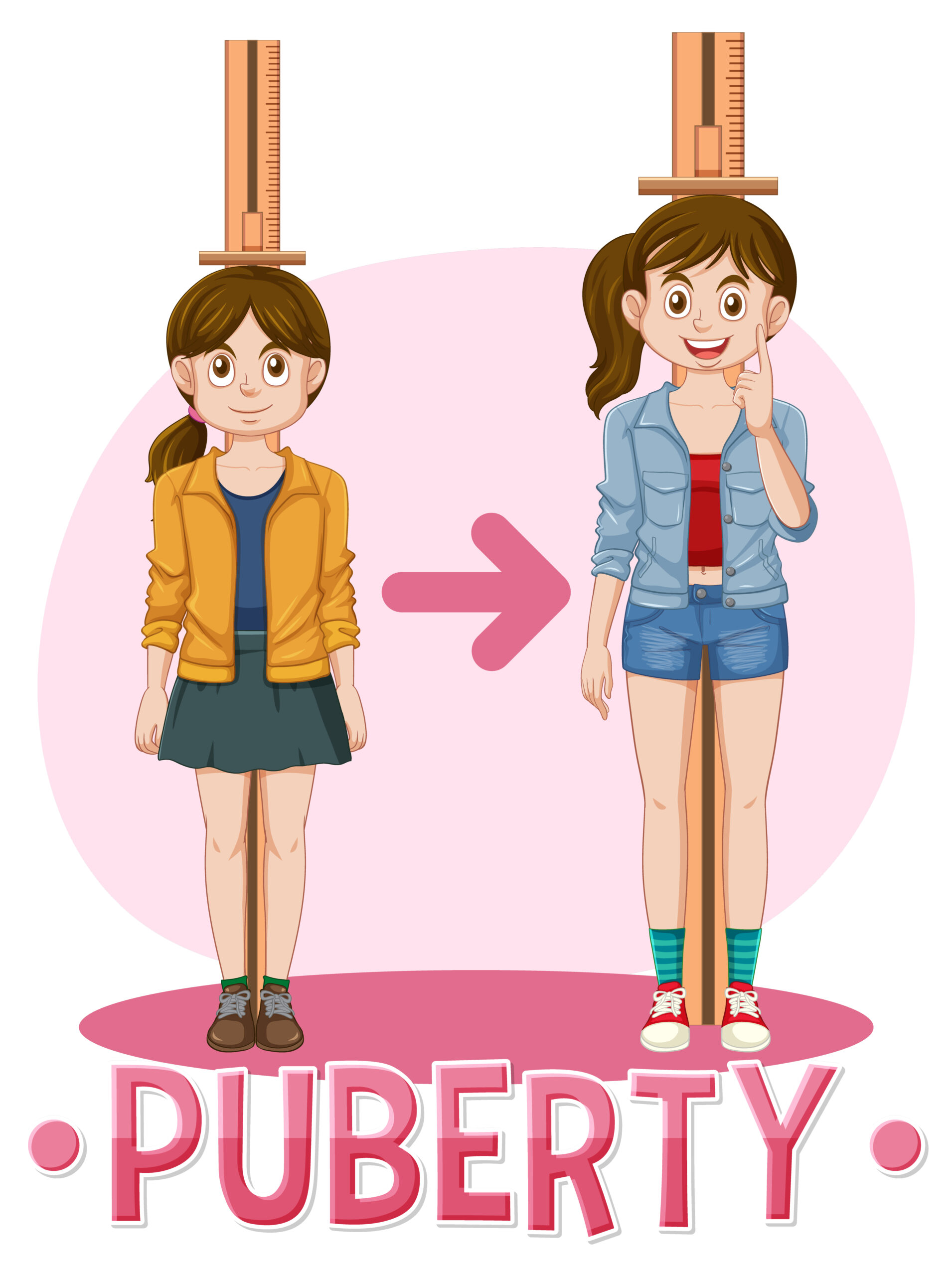Puberty in Girls: What Every Parent Should Know About This Critical Phase
Puberty is a natural milestone in a girl’s life, yet it's often surrounded by confusion, awkwardness, and misinformation — especially in India, where period awareness and female hormone health are still not openly discussed. As parents, educators, or caregivers, it's crucial to understand the changes girls go through during this phase and support them with accurate knowledge and empathy.
So, what exactly happens during puberty in girls? What’s the right age? Are the signs the same for everyone? And how can you help your daughter navigate these changes confidently?
Let’s dive in.
👧 What is Puberty?
Puberty is the stage when a child's body begins to develop into an adult body capable of reproduction. It involves physical, emotional, and hormonal changes triggered by the release of hormones like estrogen and progesterone in girls.
📊 Puberty Age in Indian Girls
The average age of puberty in Indian girls is between 8 to 13 years. However, every girl is different, and it's completely normal for some to start earlier or later than others.
That said, any signs of puberty before age 8 or after age 14 may require medical evaluation to rule out hormonal imbalances or developmental concerns.
🔍 Early Signs of Puberty in Girls
Here are the common signs that a girl is entering puberty:
1. Breast Development (Thelarche)
- Often the first sign of puberty.
- Begins with small breast buds and may be uneven.
- Usually starts between ages 8–11.
2. Growth Spurts
- Sudden increase in height and weight.
- Girls often grow fastest around 1 year before their first period.
3. Pubic and Underarm Hair Growth
- Starts gradually and darkens over time.
4. Skin & Hair Changes
- Oily skin, acne, and increased sweating.
- Hair may become oilier; body odor becomes noticeable.
5. Menstruation (Periods)
- Typically begins 2 to 3 years after breast development.
- Average age in Indian girls: 11 to 13 years.
- Irregular periods are common initially.
6. Emotional & Mood Changes
- Mood swings, irritability, and emotional sensitivity due to hormonal fluctuations.
🧬 What Causes These Changes?
The pituitary gland in the brain signals the ovaries to start producing estrogen, the primary female hormone. This triggers physical development and prepares the body for reproduction.
However, environmental factors, stress, nutrition, and hormonal disorders can affect the timing and intensity of puberty.
⚠️ When to See a Doctor
While most girls go through puberty without issues, medical advice is needed if:
- No signs of puberty by age 14
- Periods haven’t started by age 15
- Signs of very early puberty (before age 8)
- Extreme acne, hair growth, or mood changes
- Concerns about body image, eating patterns, or anxiety
🩺 Consult a hormone and fertility specialist like Dr. Durga Vytla, especially if you suspect hormonal imbalances or need expert guidance.
💡 How Parents Can Support Their Daughters
Puberty isn’t just a physical change — it’s an emotional and social shift. Your support and guidance matter more than you realize.
✅ Start the Conversation Early
Talk about puberty before it begins. Use age-appropriate language and be open to questions.
✅ Normalize Periods
Teach your daughter that menstruation is natural and nothing to be ashamed of. Encourage hygiene and preparation.
✅ Promote Body Positivity
Help her appreciate her body as it changes. Avoid body-shaming language.
✅ Watch for Emotional Changes
Teen girls may become more self-conscious or emotionally sensitive. Offer a safe space for expression.
✅ Encourage Healthy Habits
Balanced nutrition, physical activity, and sleep are vital during this phase of rapid growth.
🥗 Puberty & Hormone Health: What to Eat
Hormones and nutrition are deeply connected. A balanced diet can support smoother transitions.
Foods to include:
- 🥬 Leafy greens – for iron and calcium
- 🥛 Dairy – for bone development
- 🥚 Eggs & legumes – protein for growth
- 🍓 Fruits & vegetables – for vitamins and antioxidants
- 🌰 Nuts & seeds – healthy fats and zinc
Avoid:
- Processed snacks
- Sugary drinks
- Excessive caffeine (found in colas, energy drinks)
🌸 Final Words: Let’s Break the Silence Around Puberty
It’s time we normalize conversations about puberty, periods, and hormones. Puberty is not something to be ashamed of — it’s a powerful phase of transformation that deserves understanding and respect.
Empowered girls become confident women. Let’s give them the tools, care, and education they deserve.
#PubertyInGirls #TeenHealthIndia
#PeriodsAwareness #GirlChildCare #DrDurgaVytla
#IVFHyderabad #FertilitySpecialist #NovaIVF
#IVFSuccess #Puberty #GirlsHealthTips #HormoneHealth
#DrDurgaVytla #NovaIVFBanjaraHills #BestIVFDoctor

